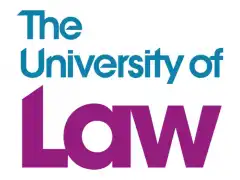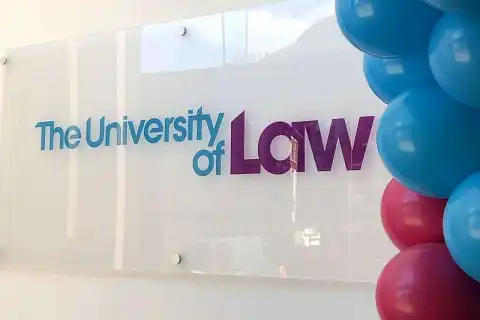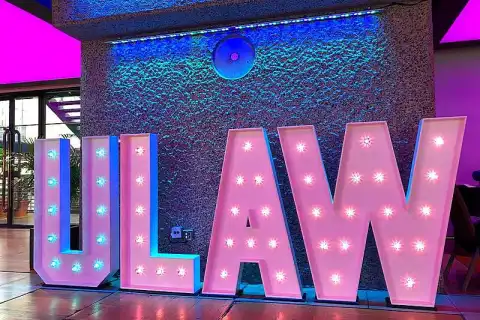Bachelor of Art (Hons) - Criminology
- 3 years
- Duration
- 17,550 GBP/year
- Price
- Rolling admission
- Start
- Rolling admission
- Deadline
- Bachelor
- Degree
- Campus
- Format
- Multiple Locations / United Kingdom
- Location
- ULaw - The University of Law
- School
Program description
The Bachelor of Arts (Honors) in Criminology is an undergraduate program that delves deeply into the fascinating and varied field of criminology. This course will help you become familiar with the major concepts and theories in modern criminology by examining them from a number of viewpoints. If you're interested in a career in criminal justice and want to learn more about the scope of criminology and its relevance to contemporary society, this course is a great place to begin.
You can study a Foundation Year before your Bachelor course. This first year develops degree-level study skills. Six courses will lead to any of our three-year degrees.
Program structure
1st year
- Foundations of Criminology
- Society and Punishment
- Media Crime and Control
- Drugs in the Criminal Justice System
- Criminal Justice in Modern Britain
- Contemporary Criminology
2nd year
- Gender, Sexuality and Crime
- The Evolution of the Prison System
- Research Methods
- Youth and Crime
- Zemiology (Social Harms)
- Cybercrime
3rd year
- Urban Criminology - The City and Globalisation
- Migration
- Dissertation (all year double module)
Choose two:
- Race, Ethnicity and Religion
- Terrorism
- The Politics of Policing
Price
Tuition fees for international students per year:
- 17,550 GBP (London)
- 16,700 GBP (Non-London)
Requirements for applicants
UK Entry Requirements
- A Level: BBC
- BTEC: DMM
- UCAS Tariff Points: 112 (From three A Levels or equivalent)
- GCSE: English Language Grade C/4 or above, or equivalent
UK Entry Requirements (Degrees with Foundation Year):
- 48 UCAS Points from a maximum of 3 A Levels, or equivalent qualifications
- GCSE English Language at Grade C/4
You may also be invited to an interview with an academic as part of the admissions process.
English language requirements for applicants whose first language is not English
- IELTS score required: 6.0 overall (at least 5.5 in each component)
- The University of Law English Test (ULET)*: 6.0 overall (at least 5.5 in each component)
- TOEFL iBT (not ‘MyBest Scores’): 60 (Listening 11, Speaking 17, Reading 12, Writing 20)
- Pearson PTE Academic: 64 overall (at least 59 in each component)
- LanguageCert ESOL (both papers must be sat within 3 months): B2 Written paper: overall 101 (min 33 in R/L/W); B2 Spoken paper: min 33/50
- Trinity ISE : ISE II: Merit in all four components
- Cambridge FCE/CAE/CPE (First, Advanced, Proficiency): 169 overall (at least 162 in each component)
- Cambridge IGCSE syllabus 0500, 0510, 0511, 0522, 0900, 0991:1st Language: C; 2nd Language: B
- International Baccalaureate : 4
- Functional Skills: Pass
- Trinity ESOL for Life Skills: Pass
English language requirements for applicants whose first language is not English (International Foundation Programme)
- IELTS score required: 5.5 overall (at least 5.5 in each component)
- The University of Law English Test (ULET)*: 5.5 overall (at least 5.5 in each component)
- TOEFL iBT (not ‘MyBest Scores’): 49 (Listening 7, Speaking 16, Reading 8, Writing 18)
- Pearson PTE Academic: 59 overall (at least 59 in each component)
- LanguageCert ESOL (both papers must be sat within 3 months): B2 Written paper: B2 paper: (min 33 in R/L/W/S)
- Trinity ISE : ISE II: One pass and three merits
- Cambridge FCE/CAE/CPE (First, Advanced, Proficiency): 162 overall (at least 154 in each component)
- Cambridge IGCSE syllabus 0500, 0510, 0511, 0522, 0900, 0991:1st Language: D; 2nd Language: C
- International Baccalaureate : 4
- Functional Skills: Pass
- Trinity ESOL for Life Skills: Pass
*The University of Law English Test (ULET) was developed to evaluate your level of English for undergraduate or graduate education. Our University will consider it as evidence of your proficiency in English. Additionally, it complies with the conditions for a UK visa for immigration (UKVI).
About the university

The University of Law is the largest law school in the United Kingdom and was formed in 1962 as The College of Law of England and Wales. It offers law degrees, specialized legal training, and continuing professional development courses for British barristers and lawyers. Its beginnings can be found around 1876.
Prior to receiving university status in 2012, the College of Law's educational and training business was divided off and incorporated as a private limited company. The College of Law had been established by royal charter as a charity in 1975. The College of Law Limited and The University of Law Limited were created from this. The college was given the authority to offer degrees in 2006. When it was given university status in 2012, it changed its name to The University of Law (ULaw) and became the first for-profit educational institution in the UK.
The university has nine campuses in the UK, located in Birmingham, Bristol, Chester, Guildford, Leeds, Manchester, Nottingham, and Sheffield, in addition to an overseas campus in Hong Kong.
All of our courses, from our undergraduate law degrees to our varied range of business courses and postgraduate programmes, are created using a special, varied, and innovative learning approach that has been shown to produce independent professionals capable of competing in the quickly changing professional world. Our courses are created to prepare you for the real-life difficulties of the working world with a focus on developing abilities in problem-solving, evaluating arguments, critical thinking, and commercial awareness.
Read more about The University of Law (ULaw), United Kingdom





